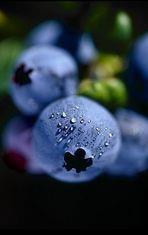
Products that award themselves the status of ‘superfood’ will be banned under new EU rules that came into effect last week, unless the claim can be proven.
The new laws will apply to all food or drink products made or sold for human consumption within EU nations.
Numerous items of fruit and vegetables have had the ‘superfood’ label attached to them in recent years. In total across all category, 100 products have laid claim to the title.
But many nutritionists claim there are no proven benefits to them - that it is a triumph of marketing over common sense.
The new EU legislation will ban the use of the term superfood unless it is accompanied by a specific authorised health claim that explains to consumers why the product is good for their health.
However, companies will have two years in which to adjust their marketing in line with the new rules.
The legislation will also mean nutritional claims such as ‘low in salt’ or ‘light’ will have to meet a standardised definition agreed by the EU.
And foods that make a nutrition claim - such as being low in salt - will have to make it clear on the same label if they are also high in fat or sugar.
In addition, foods that are high in more than one nutrient will not be allowed to make a nutrition claim about another of its ingredients.